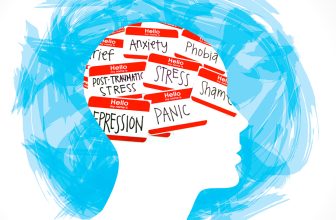Introduction
Brain health is crucial for overall well-being, influencing how we think, feel, and interact with the world around us. With the rise in neurodegenerative diseases such as Alzheimer’s and Parkinson’s, maintaining brain health has become a priority for many. This article will explore practical strategies to support brain health, including diet, exercise, mental stimulation, and lifestyle choices.
Understanding Brain Health
Brain health refers to the ability to remember, learn, plan, concentrate, and maintain a clear and active mind. A healthy brain helps us make decisions, solve problems, and live a fulfilling life. As we age, it’s natural for cognitive abilities to decline, but with the right approach, we can slow down this process and enhance our brain’s resilience.
The Importance of a Brain-Healthy Diet
Diet plays a significant role in brain health. The food we consume provides the necessary nutrients that support cognitive function. Here are some dietary recommendations to boost brain health:
- Omega-3 Fatty Acids: Found in fish like salmon, mackerel, and sardines, as well as in flaxseeds and walnuts, omega-3 fatty acids are essential for brain health. They support brain cell structure and function, reduce inflammation, and have been linked to a lower risk of Alzheimer’s disease.
- Antioxidants: Berries, dark chocolate, nuts, and seeds are rich in antioxidants that protect the brain from oxidative stress, which can damage cells and contribute to cognitive decline. Vitamins E and C, found in foods like spinach, broccoli, and citrus fruits, are also powerful antioxidants.
- Whole Grains: Whole grains like oats, brown rice, and quinoa provide a steady supply of glucose, the brain’s main energy source. A diet rich in whole grains can help maintain focus and concentration.
- Leafy Greens: Vegetables like spinach, kale, and broccoli are high in vitamins and minerals that support cognitive function. They are rich in folate, vitamin K, and beta carotene, which are linked to slower cognitive decline.
- Healthy Fats: Avocados, olive oil, and nuts are sources of monounsaturated fats that improve blood flow and support overall brain health. These fats can also help in reducing bad cholesterol, which is linked to cognitive decline.
Exercise and Brain Health
Regular physical activity is not only good for the body but also for the brain. Exercise increases blood flow to the brain, delivering oxygen and nutrients that support brain health. It also stimulates the production of neurotrophic factors, proteins that promote the survival and growth of neurons.
- Aerobic Exercise: Activities like walking, jogging, swimming, and cycling have been shown to improve memory, attention, and processing speed. Regular aerobic exercise can also reduce the risk of developing neurodegenerative diseases.
- Strength Training: Weightlifting and resistance exercises are beneficial for brain health. They improve muscle strength, which is linked to better brain function. Strength training also increases the production of brain-derived neurotrophic factor (BDNF), a protein that supports brain health.
- Mind-Body Exercises: Practices like yoga and tai chi combine physical movement with mental focus. These exercises reduce stress, improve mood, and enhance cognitive function. They also promote mindfulness, which has been linked to better brain health.
Unlocking the Secrets of Brain Health: Strategies for Cognitive Vitality and Mental Well-being
Mental Stimulation and Brain Health
Just like muscles, the brain needs regular exercise to stay sharp. Engaging in mentally stimulating activities can help keep the brain agile and reduce the risk of cognitive decline.
- Learning New Skills: Picking up a new hobby, learning a new language, or playing a musical instrument can challenge the brain and create new neural connections. These activities stimulate different parts of the brain, improving cognitive function.
- Puzzles and Games: Activities like crossword puzzles, Sudoku, and memory games can keep the brain active and engaged. These games improve problem-solving skills, memory, and attention.
- Reading and Writing: Regular reading and writing activities stimulate the brain and enhance cognitive abilities. They improve vocabulary, comprehension, and critical thinking skills.
- Social Interaction: Engaging in social activities is vital for brain health. Interacting with others, participating in group activities, and maintaining strong social connections can reduce the risk of cognitive decline and dementia.
The Role of Sleep in Brain Health
Quality sleep is essential for brain health. During sleep, the brain consolidates memories, clears out toxins, and repairs itself. Lack of sleep or poor sleep quality can lead to cognitive decline and increase the risk of neurodegenerative diseases.
- Prioritize Sleep: Aim for 7-9 hours of sleep per night. A regular sleep schedule can help maintain a healthy circadian rhythm, which is essential for brain function.
- Create a Sleep-Friendly Environment: Ensure your bedroom is conducive to sleep. This includes a comfortable mattress, blackout curtains, and a cool temperature. Avoid screens and bright lights before bedtime to promote the production of melatonin, the sleep hormone.
- Practice Good Sleep Hygiene: Establish a relaxing bedtime routine, such as reading, meditating, or taking a warm bath. Limit caffeine and heavy meals before bedtime, as they can disrupt sleep.
Managing Stress for Better Brain Health
Chronic stress can have detrimental effects on brain health. It can impair memory, reduce cognitive function, and increase the risk of neurodegenerative diseases.
- Mindfulness and Meditation: Mindfulness practices and meditation can reduce stress and improve brain function. They enhance focus, memory, and emotional regulation.
- Physical Activity: Exercise is an effective way to manage stress. It reduces the production of stress hormones and increases the release of endorphins, the body’s natural mood elevators.
- Relaxation Techniques: Techniques such as deep breathing, progressive muscle relaxation, and visualization can help reduce stress and promote brain health.
Conclusion
Maintaining brain health is a lifelong commitment that involves a combination of diet, exercise, mental stimulation, quality sleep, and stress management. By incorporating these strategies into your daily routine, you can support cognitive function, enhance memory, and reduce the risk of neurodegenerative diseases. Prioritize brain health today for a sharper, more resilient mind tomorrow.






